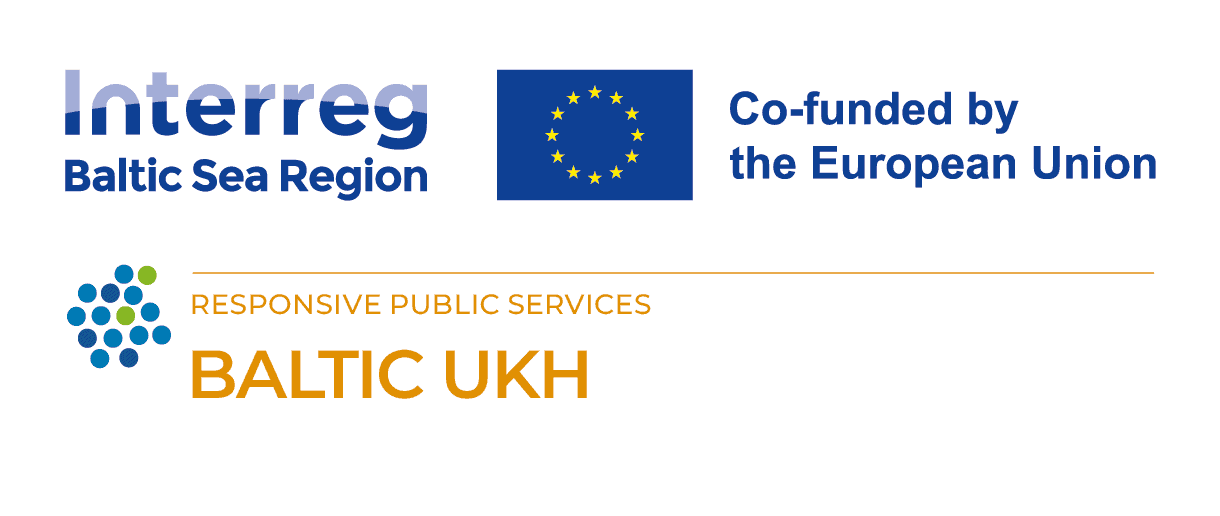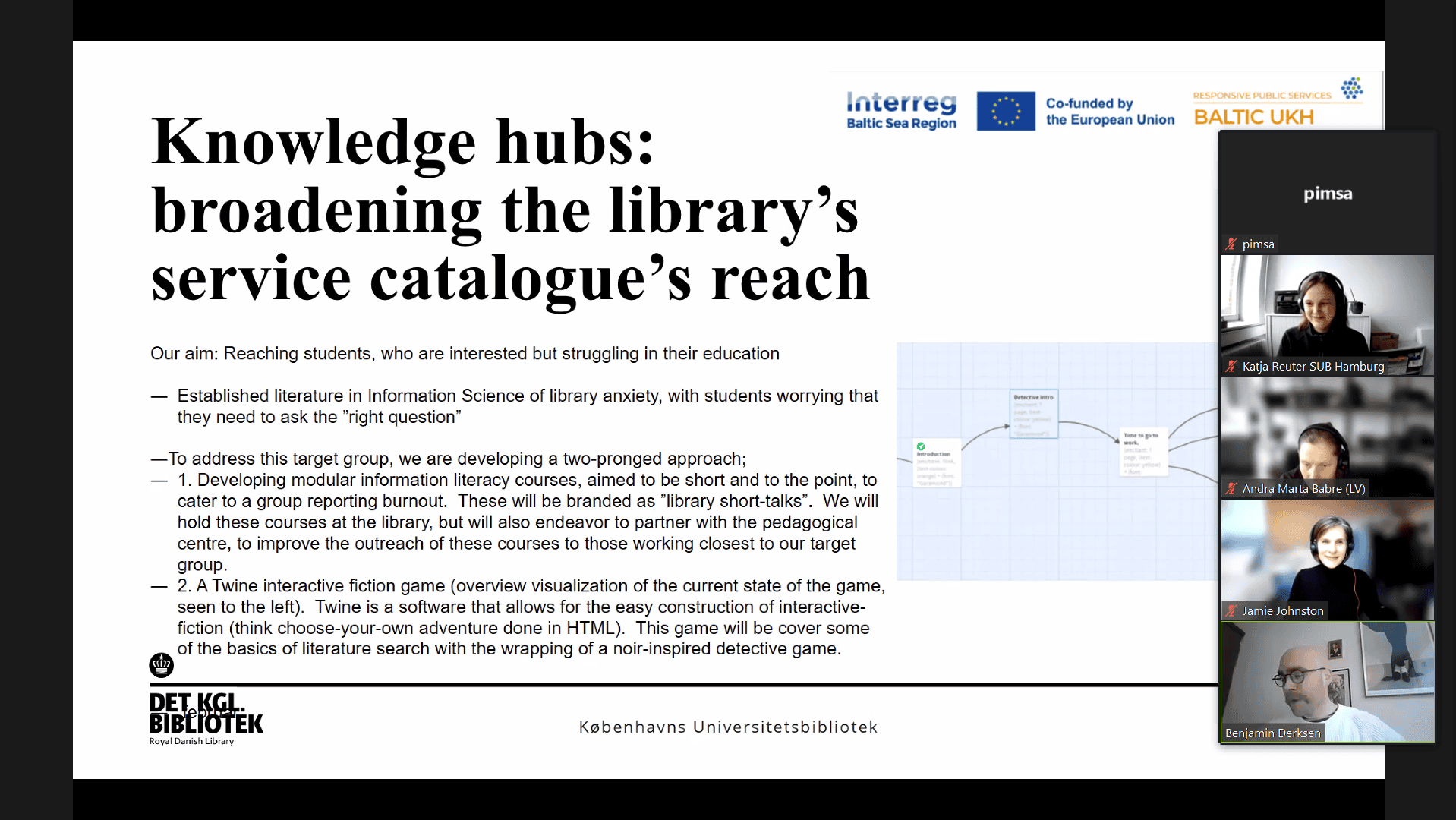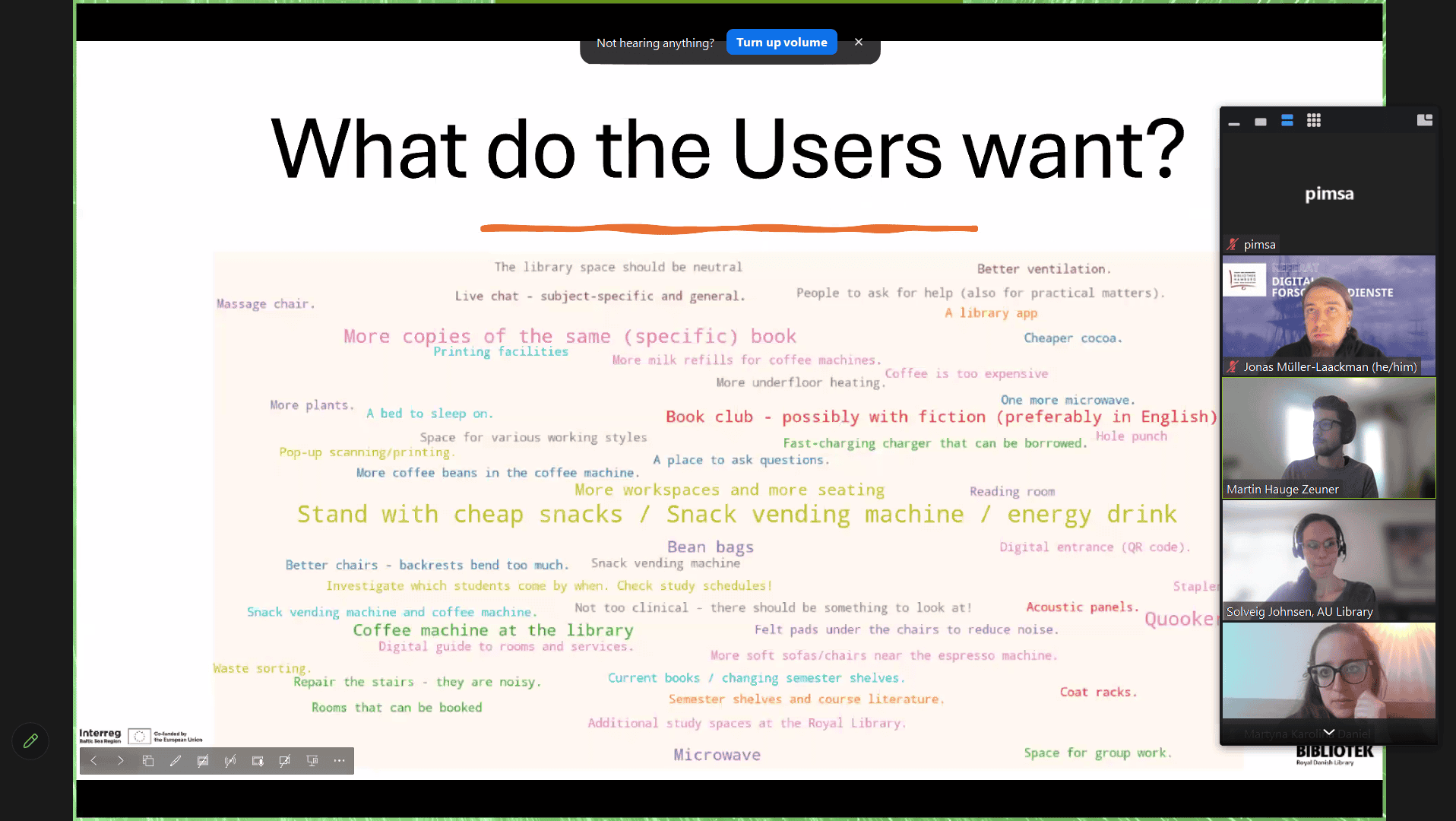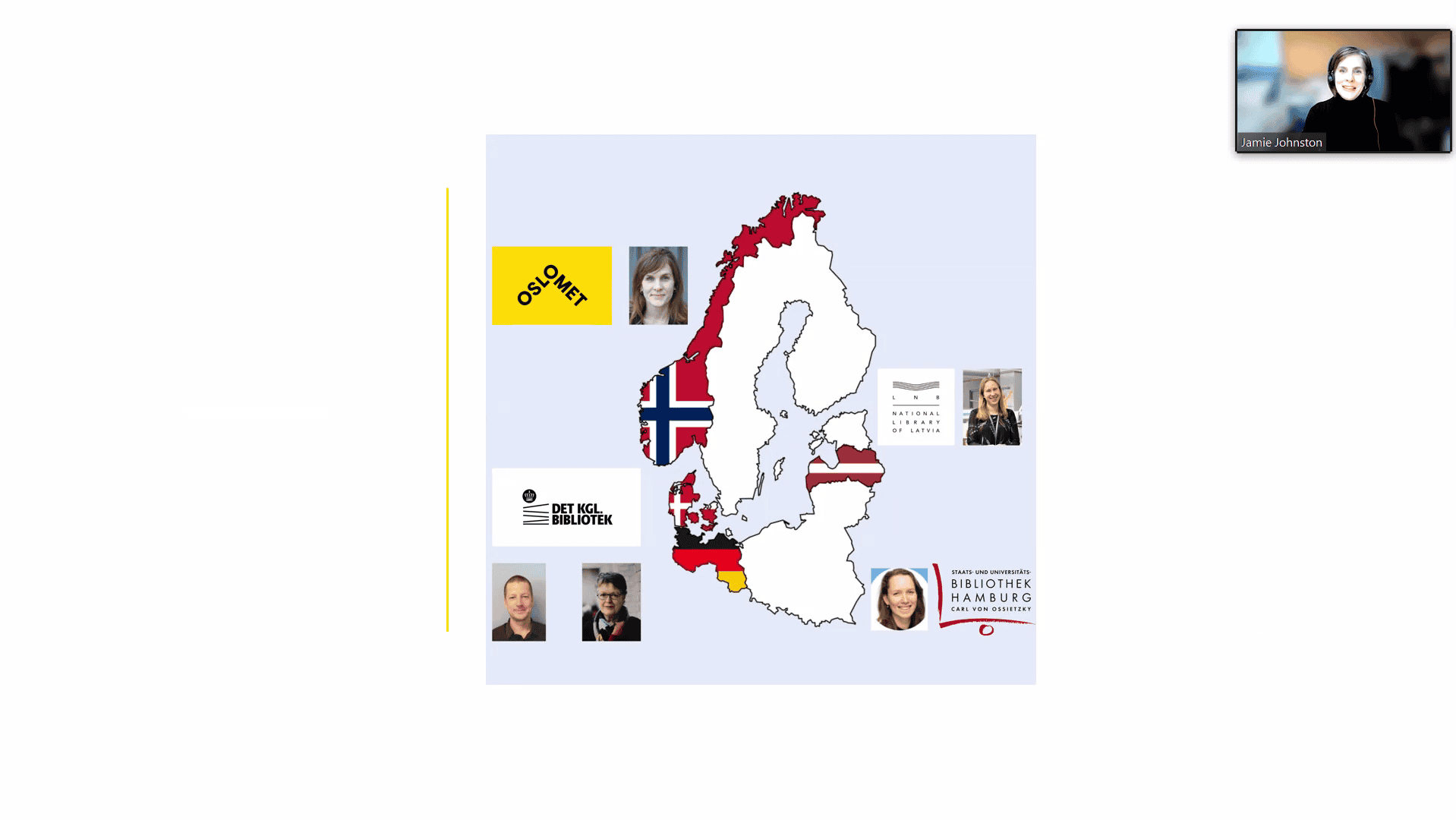
BALTIC UKH's Joint International Feedback Workshop Showcases Pilot Projects
29 April 2024
International Feedback Workshop
The BALTIC UKH partners held an international feedback workshop at the beginning of March, which marked the completion of the initial project phase. Project partners presented preliminary drafts of pilot projects for their spatial or service designs, seeking feedback on the proposed solutions. The workshop saw a diverse group of 23 participants, including representatives from public libraries in Iceland, young architects from Latvia, and specialists from German and Danish universities and public institutions, who contributed their knowledge and expertise. This diversity of professional backgrounds enriched the workshop, providing crucial input and key insights for propelling the project ideas forward.
Workshop hostess Jamie Johnston from OsloMet in Norway opened the session with an overview of the BALTIC UKH project and activities. To break the ice, Benjamin Derksen from the University of Copenhagen organized a “speed dating” activity, which received positive feedback for creating a comfortable atmosphere. Following brief presentations of each local project by project partners, participants engaged in focused breakout room sessions. The workshop concluded with valuable new contacts, ideas, and suggestions for pilot project development. Participant feedback highlighted the effectiveness of visuals and breakout sessions in facilitating productive and insightful exchanges.
Workshop Takeaways
The main takeaways from project partner presenter Benjamin Derksen from Copenhagen, Denmark was the need to tailor library services to diverse student groups’ unique requirements. It highlighted that libraries should refrain from relying on traditions and a strong brand association, as new user groups have different expectations for services, communication practices, and physical spaces. Based on a presentation of the Twine learning tool and collaborative insights, the breakout session served as a nexus of inspiration. It reiterated the vital role of ongoing community engagement with the university and dialogue with users in shaping the future landscape of library services.
The project partner presenter Martin Zeuner from Aarhus, Denmark gained valuable input from the workshop, particularly an idea involving food or cake. The idea is to invite students or faculty to share a meal with library staff to foster an informal atmosphere and exchange ideas, facilitating further exploration into the needs of specific student groups. The feedback also highlighted the necessity to focus more on individual student groups and their unique needs. A fruitful discussion also emerged on “community care” and the library’s role in university life and student well-being.
The German partner’s breakout session, led by project partner presenter Katja Reuter, focused on an overview of spatial concepts and how they translate into physical space. Guided by their main challenge of ensuring that people know how to make the space their own and assemble it according to their needs, valuable insights and ideas were gathered. One key takeaway was the necessity for the space to have visibility and some sort of curation initially until people become comfortable appropriating it according to their needs. Crucial for the German project team is involving the local associated organizations and ideas for jointly utilizing and working with the new space and target groups.
The main takeaways from the Latvian project partner presenter Matijs Babris was that library spaces for youth should offer good acoustic comfort and feature mobile, reconfigurable layouts achieved through transformable and modular furniture. This design incorporates youth feedback for versatile space usage, including 3D printing, virtual reality, and other modern technologies to attract them, as well as a nearby coffee and snacks corner catering to their need for breaks during various activities. Despite the significant challenges of having food and drinks in the library, breakout-room discussions revealed considerable experience and possible solutions for implementing food and drink attractively and acceptably within a library space.
Summary of the Event
The workshop was considered a great success by project partners and provided an important opportunity for partner team-building. Key takeaways included the importance of tailoring library services to diverse student needs, the role of ongoing community engagement, and the necessity for adaptable library spaces. The workshop concluded with promising ideas for pilot project development, highlighting the significance of collaboration and innovation in shaping future library services.
Project partners will convene in Hamburg for an international roundtable session titled ‘Engaging Users in Creating the Next Library Space – Best Ideas in Innovative and Experimental Library Space Design‘ at the BiblioCon 2024 conference in Hamburg, Germany, on Thursday, June 6th, from 4:30 PM to 6:30 PM. Partners will present work on a scoping review related to libraries and co-creative projects, as well as their work on pilot projects. Please contact BALTIC UKH project leader Miriam Green for more information at balticukh@sub.uni-hamburg.de.










